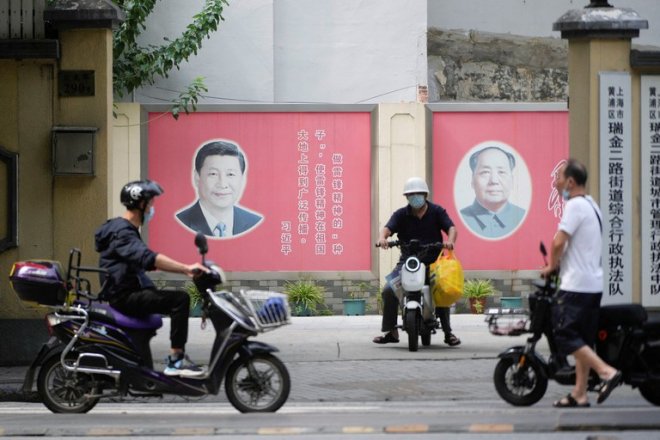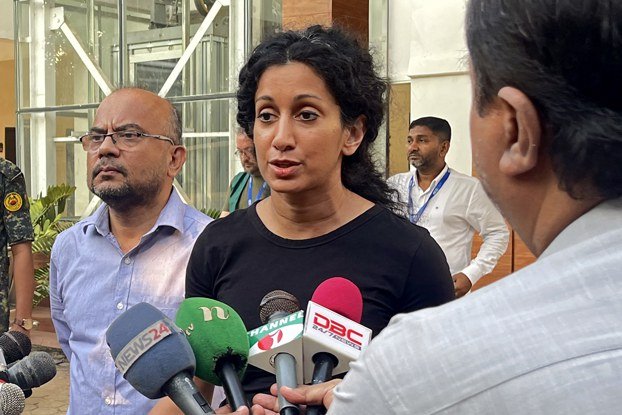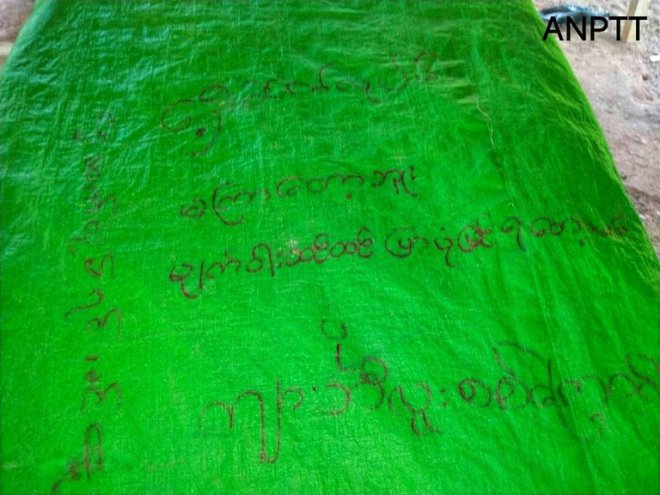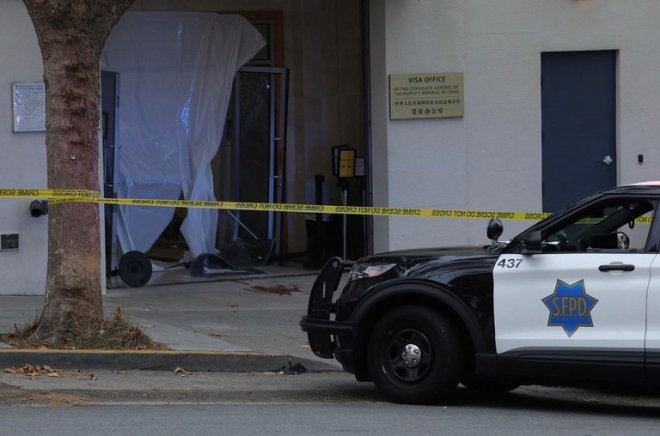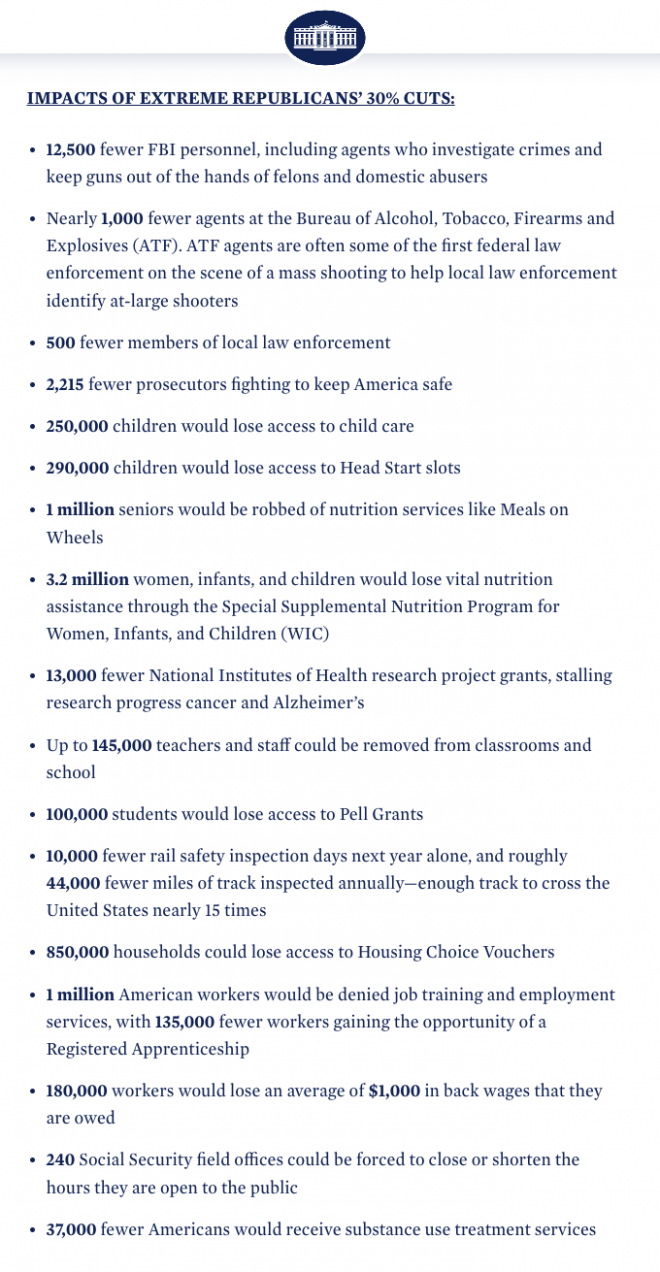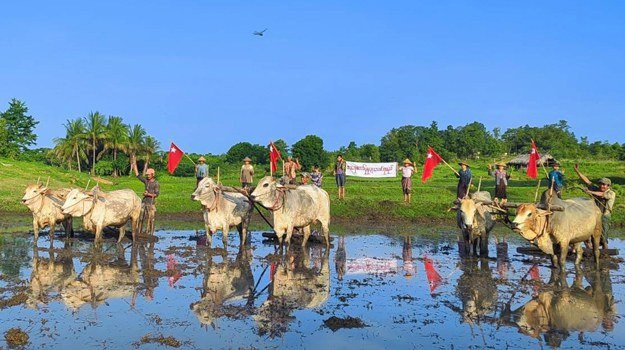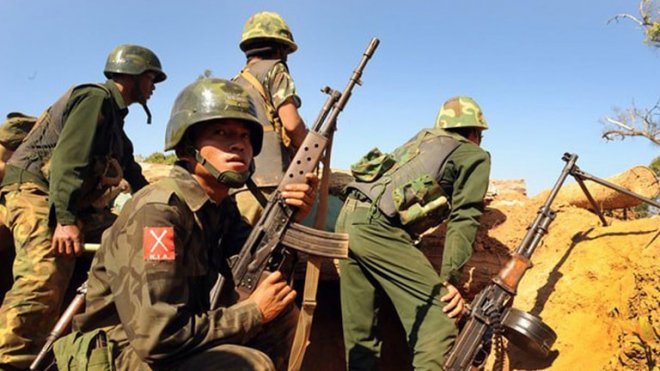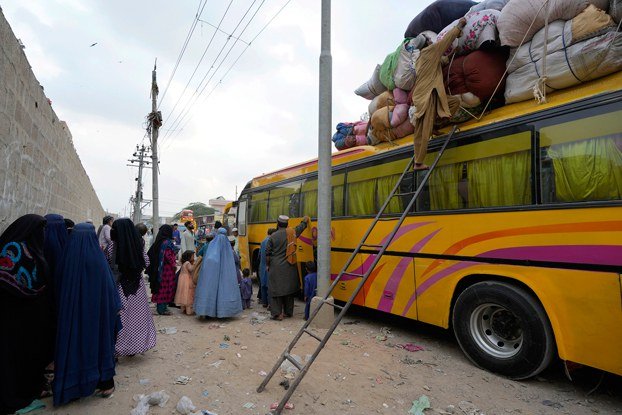Interview: “We told the children we were defecting. They said ‘thank you.’”
O Hye-son is the wife of Thae Yong-ho, who in 2016 was North Korea’s deputy ambassador to the United Kingdom when the family decided to defect from the North to resettle in the South. Thae became the highest ranking North Korean official to switch sides.
Less than four years after they arrived in Seoul, Thae won a local election and became a member of the National Assembly representing the wealthy Gangnam district of Seoul.
Though South Korean and Western media have been eager to tell Thae’s former North Korean diplomat defector turned South Korean politician story, very little about the rest of the family had garnered much attention, until now.
In O’s recently published book, “The Pyongyang Lady Who Came From London,” she discusses her background as a member of North Korea’s elite class, her impressions of North Korean leader Kim Jong Un, the family’s experiences abroad and how and why they decided to defect. Do Hyung Han of Radio Free Asia’s Korean Service spoke with O to learn more about her family’s story. The interview has been edited for length and clarity.
RFA: You were born into one of the more privileged classes in North Korea, the so-called “anti-Japanese partisan” class, so you grew up enjoying enormous privileges compared to most people. What is it that made you think that maybe something was not right?
O: When I was a student at the Pyongyang Foreign Language Academy, there was another person from an anti-Japanese partisan family like me, but I saw the entire family disappear overnight. No matter how much power a partisan might have, I always felt that it could happen to me like that at a moment’s notice.
When I lived in North Korea, I always thought that the hard life we all experienced would be temporary, but I realized that everything was so different when I came overseas. The way you live is different. I learned about the corruption of the Kim family in North Korea. I often thought that North Korea offered no prospects for our future.
RFA: During your first stint in the U.K., you watched your children growing up in a situation so different from North Korea, what was it like when you all had to go back in 2008?
O: My kids were glowing with happiness in the United Kingdom. They knew freedom and how to solve their problems in a democratic way. They had known nothing but happiness, but then we went back to North Korea. After a year there, they became skinny. I began to worry. “Will I lose my children? Will they become ill?”
Since my oldest child was very sick [with kidney disease], I was concerned that he would get sick again and again. My children were always frowning. Of course, they tried to hide it, but I could tell. When we lived in the United Kingdom, there were orderly norms like right and wrong. Like, if I do this, I’m a good kid and I should do such things. But North Korea is a country without laws. I felt like my children were becoming bad kids. I was upset with how things were changing like that.
RFA: In the book, you said that when you were living in the United Kingdom, you talked with your husband a lot about defecting. Specifically, when you talked about your children, you said that the conversation always ended with the decision that the children should stay abroad. Can you elaborate?
O: There is an exercise course that allows us to return in an hour from the North Korean Embassy. Every night before dinner, when we walked there, I led the conversation and talked about the uncertainties in our future. Every time, the conclusion was that we had to leave the children here, not making them go back to North Korea. Then, when North Korea told us to send my children back in, my husband asked me again if I’m really determined to defect.
RFA: What was the reaction when you told your children that the family would defect from North Korea?
O: The first thing they said was “thank you.” I didn’t know that they would react that way. I was determined that I had to take my children no matter what, but I was worried about what I should do and how I would accept it if they said no.
My child went to talk to his father and said thank you. He said, “If Dad thinks so, I’m thankful.” So we came to realize that it was something they had been waiting for.
My youngest also said thank you. Even now, they are still grateful. They say that their Mom and Dad did everything they could do for them. They said that we did everything we could to bring them to South Korea.
![]() United Future Party candidate Thae Yong Ho, a former North Korean diplomat who defected to South Korea in 2016, reacts after he was certain to secure victory in the parliamentary election in Seoul, South Korea, April 16, 2020. Credit: Newsis via APRFA: If the two of you had no children, would you have still defected?
United Future Party candidate Thae Yong Ho, a former North Korean diplomat who defected to South Korea in 2016, reacts after he was certain to secure victory in the parliamentary election in Seoul, South Korea, April 16, 2020. Credit: Newsis via APRFA: If the two of you had no children, would you have still defected?
O: I don’t think so because we have family members in North Korea. I think mothers have strength because they have children. With no fear, I must do whatever I can for my children, no matter what. I could not let my children live such a terrible life [in North Korea.]
RFA: In the book, you evaluated Kim Jong Un as “a dictator who surpasses his predecessors.” In what way is he worse than his father Kim Jong Il, or his grandfather Kim Il Sung?”
O: He’s ruthless. There is a documentary film that showed how he guided the training of the People’s Army units. It’s a film meant to introduce Kim Jong Un. He instructed the training of the military units onsite. The training regimen he led was a round-trip long distance swim in which generals older than himself were made to wear military uniforms and then had them swim to and from a destination out at sea. As I watched it, I thought that even Kim Jong Il had never driven such older people so hard into the sea.
RFA: In your book, you said that Kim Jong Il and Kim Jong Un have turned North Korea into a large prison. What exactly do you mean?
O: First of all, you can’t go out, you can’t come in. You can’t hear things freely. You listen to this. You don’t listen to that. You can sell this or you can wear that. You are allowed to say these things. What country regulates life in such ways? You can only control people like that in prison. Don’t look, don’t listen. I think it’s wrong to treat North Koreans this way.
RFA: What made you decide to write the book? Also, what plans do you have for the future?
O: The reason I wrote this book is to cherish freedom. I wrote it with the hope that the readers would also cherish freedom. What I wish for in the future is that I would be able to tell people more about the lives of North Koreans and to write something that connects the broken physical and emotional bonds between the people of North and South Korea.
RFA: Your father passed away before you defected. What would he say if he saw how you and your family were living today?
O: I think he would say “Good job, I’m glad you left, and I hope you live well.”
Translated by Claire Shinyoung Oh Lee and Leejin J. Chung. Edited by Eugene Whong.
[圖擷取自網路,如有疑問請私訊]
Less than four years after they arrived in Seoul, Thae won a local election and became a member of the National Assembly representing the wealthy Gangnam district of Seoul.
Though South Korean and Western media have been eager to tell Thae’s former North Korean diplomat defector turned South Korean politician story, very little about the rest of the family had garnered much attention, until now.
In O’s recently published book, “The Pyongyang Lady Who Came From London,” she discusses her background as a member of North Korea’s elite class, her impressions of North Korean leader Kim Jong Un, the family’s experiences abroad and how and why they decided to defect. Do Hyung Han of Radio Free Asia’s Korean Service spoke with O to learn more about her family’s story. The interview has been edited for length and clarity.
RFA: You were born into one of the more privileged classes in North Korea, the so-called “anti-Japanese partisan” class, so you grew up enjoying enormous privileges compared to most people. What is it that made you think that maybe something was not right?
O: When I was a student at the Pyongyang Foreign Language Academy, there was another person from an anti-Japanese partisan family like me, but I saw the entire family disappear overnight. No matter how much power a partisan might have, I always felt that it could happen to me like that at a moment’s notice.
When I lived in North Korea, I always thought that the hard life we all experienced would be temporary, but I realized that everything was so different when I came overseas. The way you live is different. I learned about the corruption of the Kim family in North Korea. I often thought that North Korea offered no prospects for our future.
RFA: During your first stint in the U.K., you watched your children growing up in a situation so different from North Korea, what was it like when you all had to go back in 2008?
O: My kids were glowing with happiness in the United Kingdom. They knew freedom and how to solve their problems in a democratic way. They had known nothing but happiness, but then we went back to North Korea. After a year there, they became skinny. I began to worry. “Will I lose my children? Will they become ill?”
Since my oldest child was very sick [with kidney disease], I was concerned that he would get sick again and again. My children were always frowning. Of course, they tried to hide it, but I could tell. When we lived in the United Kingdom, there were orderly norms like right and wrong. Like, if I do this, I’m a good kid and I should do such things. But North Korea is a country without laws. I felt like my children were becoming bad kids. I was upset with how things were changing like that.
RFA: In the book, you said that when you were living in the United Kingdom, you talked with your husband a lot about defecting. Specifically, when you talked about your children, you said that the conversation always ended with the decision that the children should stay abroad. Can you elaborate?
O: There is an exercise course that allows us to return in an hour from the North Korean Embassy. Every night before dinner, when we walked there, I led the conversation and talked about the uncertainties in our future. Every time, the conclusion was that we had to leave the children here, not making them go back to North Korea. Then, when North Korea told us to send my children back in, my husband asked me again if I’m really determined to defect.
RFA: What was the reaction when you told your children that the family would defect from North Korea?
O: The first thing they said was “thank you.” I didn’t know that they would react that way. I was determined that I had to take my children no matter what, but I was worried about what I should do and how I would accept it if they said no.
My child went to talk to his father and said thank you. He said, “If Dad thinks so, I’m thankful.” So we came to realize that it was something they had been waiting for.
My youngest also said thank you. Even now, they are still grateful. They say that their Mom and Dad did everything they could do for them. They said that we did everything we could to bring them to South Korea.
 United Future Party candidate Thae Yong Ho, a former North Korean diplomat who defected to South Korea in 2016, reacts after he was certain to secure victory in the parliamentary election in Seoul, South Korea, April 16, 2020. Credit: Newsis via APRFA: If the two of you had no children, would you have still defected?
United Future Party candidate Thae Yong Ho, a former North Korean diplomat who defected to South Korea in 2016, reacts after he was certain to secure victory in the parliamentary election in Seoul, South Korea, April 16, 2020. Credit: Newsis via APRFA: If the two of you had no children, would you have still defected?O: I don’t think so because we have family members in North Korea. I think mothers have strength because they have children. With no fear, I must do whatever I can for my children, no matter what. I could not let my children live such a terrible life [in North Korea.]
RFA: In the book, you evaluated Kim Jong Un as “a dictator who surpasses his predecessors.” In what way is he worse than his father Kim Jong Il, or his grandfather Kim Il Sung?”
O: He’s ruthless. There is a documentary film that showed how he guided the training of the People’s Army units. It’s a film meant to introduce Kim Jong Un. He instructed the training of the military units onsite. The training regimen he led was a round-trip long distance swim in which generals older than himself were made to wear military uniforms and then had them swim to and from a destination out at sea. As I watched it, I thought that even Kim Jong Il had never driven such older people so hard into the sea.
RFA: In your book, you said that Kim Jong Il and Kim Jong Un have turned North Korea into a large prison. What exactly do you mean?
O: First of all, you can’t go out, you can’t come in. You can’t hear things freely. You listen to this. You don’t listen to that. You can sell this or you can wear that. You are allowed to say these things. What country regulates life in such ways? You can only control people like that in prison. Don’t look, don’t listen. I think it’s wrong to treat North Koreans this way.
RFA: What made you decide to write the book? Also, what plans do you have for the future?
O: The reason I wrote this book is to cherish freedom. I wrote it with the hope that the readers would also cherish freedom. What I wish for in the future is that I would be able to tell people more about the lives of North Koreans and to write something that connects the broken physical and emotional bonds between the people of North and South Korea.
RFA: Your father passed away before you defected. What would he say if he saw how you and your family were living today?
O: I think he would say “Good job, I’m glad you left, and I hope you live well.”
Translated by Claire Shinyoung Oh Lee and Leejin J. Chung. Edited by Eugene Whong.
[圖擷取自網路,如有疑問請私訊]
|
本篇 |
不想錯過? 請追蹤FB專頁! |
| 喜歡這篇嗎?快分享吧! |
相關文章
AsianNewsCast









